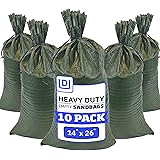Local Government Resources for Disaster Preparedness
City and County Services
When it comes to disaster preparedness, your city or county government is often the first place to start. They usually have dedicated departments or officers who handle emergencies and disaster planning. I’ve found that attending town hall meetings and public forums provides a wealth of information directly from those in the know.
Often, these local government offices run workshops and training sessions on how to prepare for natural disasters, from earthquakes to floods. Becoming involved in these programs not only educates you but connects you with like-minded individuals in your community. It’s a win-win!
In my experience, you can also find numerous pamphlets, guides, and other printed materials at your local city hall or community center. Many of these resources are now available online too, making it easier than ever to be well-prepared from the comfort of your home.
Emergency Alert Systems
Another essential service provided by local governments is emergency alert systems. Whether it’s through text messages, automated calls, or social media updates, staying in the loop during an emergency can save lives. I’ve personally signed up for these alerts and can attest to their usefulness when a sudden storm or power outage hits.
Registering for these services is usually quick and straightforward. Many local websites have portals where you can sign up for notifications specific to your area. Trust me, it’s better to get a false alarm than to miss out on crucial information when disaster strikes.
It’s also wise to share this information with friends, family, and neighbors. The more people who are informed, the better prepared your community will be when facing a disaster.
Public Safety Drills
Participating in public safety drills can be invaluable. I’ve attended a few myself and always walk away with a deeper understanding of how to react in various scenarios. Schools, businesses, and even residential communities often organize these drills, simulated to mimic real-life emergency situations.
These drills often cover a range of scenarios including evacuation procedures, first aid, and how to use emergency equipment like fire extinguishers. The hands-on experience is not something you can easily replicate from reading a brochure or watching a video.
== > What if ... Get a FREE Subscription to PREPARE
Encourage your family and neighbors to join these drills. Practicing together ensures that everyone knows their role during an actual disaster, which can drastically improve response times and effectiveness.
Nonprofit Organizations Dedicated to Disaster Preparedness
Red Cross Initiatives
The Red Cross is one of the leading organizations in disaster preparedness and response. They offer a plethora of programs designed to educate communities about how to prepare, respond, and recover from disasters. I’ve attended several Red Cross courses and found them immensely valuable.
From CPR to emergency water purification, the Red Cross leaves no stone unturned. Their training sessions are often free or low-cost, making them accessible to everyone. Plus, you get to meet people who are equally passionate about community safety.
In addition to training programs, the Red Cross often holds blood drives and other community events. Participating in these activities not only prepares you for disasters but also strengthens your community bonds.
Local Charities and Foundations
Don’t overlook local charities and foundations that focus on disaster preparedness. These organizations often have a more localized understanding of the risks specific to your area. For instance, a coastal community might focus more on hurricane preparedness, while a city near a fault line will prioritize earthquake readiness.
Volunteering with these organizations can be incredibly rewarding. I’ve volunteered with a local charity that focuses on disaster relief and preparedness, and it’s fascinating to see how even small contributions can make a big difference.
These groups often have regular meetings and training sessions. Becoming a part of such a community helps ensure you’re always up-to-date with the latest preparedness techniques and strategies.
Faith-Based Organizations
Faith-based organizations also play a significant role in disaster preparedness. Many churches, mosques, synagogues, and temples offer programs aimed at preparing their congregations for emergencies. These organizations often have excellent community outreach, making it easier to spread the word about preparedness.
I’ve found that these groups often offer a unique sense of community and support. When you share the same values and beliefs, working together towards a common goal becomes even more meaningful.
Being involved with a faith-based group’s disaster preparedness efforts also means you have a built-in support network when things go wrong. This kind of emotional and logistic support is crucial during disasters.
Community-Based Training Programs
Neighborhood Watch Programs
Neighborhood watch programs have evolved to include disaster preparedness training. When I joined my local neighborhood watch, I was surprised at how much emphasis they placed on being ready for emergencies. It’s a fantastic way to get to know your neighbors while also preparing for the unexpected.
These programs usually offer training in basic first aid, home safety, and evacuation plans. I’ve participated in a few sessions, and it’s a comforting feeling knowing that everyone on your block is on the same page when it comes to safety.
Moreover, these programs often facilitate communication via group texts or apps, ensuring that everyone is informed and able to help out when disaster strikes.
Local Fire Department Training
Our local fire department offers courses on disaster preparedness, which are incredibly hands-on and practical. I’ve attended a session where we learned how to properly use fire extinguishers, perform CPR, and even basic home structure assessments for fire risks.
Firefighters bring a wealth of experience to the table and their training is always practical and straightforward. You get to use real equipment and learn from people who’ve been in these situations.
In my view, getting trained by the local fire department not only prepares you for emergencies but also gives you a greater appreciation for the work these heroes do every day.
Community Colleges
Many community colleges offer courses and certificates in emergency management and disaster preparedness. I’ve taken a few classes myself, and they are surprisingly comprehensive. From natural hazards to human-made ones, these courses cover it all.
The beauty of these programs is that they often come with certifications which can be useful if you’re considering a career in emergency management. Plus, you meet a diverse range of people looking to make a difference in their communities.
If you’re looking for a more structured and in-depth approach to disaster preparedness, community college courses are a fantastic option. You’ll leave not just better informed, but credentialed as well.
Online Forums and Social Media Groups
Facebook Groups
Facebook groups dedicated to disaster preparedness are a treasure trove of information. I’ve joined a few and found them incredibly useful for sharing tips, news, and resources. Plus, they offer a sense of community that’s hard to find elsewhere.
These groups often share real-time updates during disasters, which can be crucial. I’ve witnessed people share evacuation routes, emergency shelter locations, and even offer help to those in need during crises.
The discussions in these groups are also eye-opening. You get to hear about other people’s experiences and learn from them. It’s like having a community of experts at your fingertips.
Specialized Forums
There are specialized forums out there, like Reddit, where you can find dedicated threads on disaster preparedness. These forums are often frequented by experts and enthusiasts who are passionate about the topic.
The depth of information available is staggering. From detailed checklists to niche advice about specific types of disasters, these forums have it all. I’ve often found myself diving deep into threads that discuss everything from bug-out bags to solar-powered emergency kits.
Contributing to these forums also means you can get feedback on your own preparedness plans. The community is generally very supportive and eager to help each other out.
Twitter Hashtags
Believe it or not, Twitter can be an invaluable resource for disaster preparedness. Following the right hashtags like #DisasterPreparedness or #EmergencyManagement helps you stay updated with the latest news and tips.
I’ve been able to get real-time updates during emergencies, directly from official sources like FEMA or local government agencies. It’s a quick way to stay in the know and adjust your plans accordingly.
Moreover, Twitter chats and Q&A sessions hosted by experts can offer invaluable insights. Participating in these discussions can broaden your knowledge and connect you with professionals in the field.
Frequently Asked Questions
1. What are some good starting points for finding community support for disaster preparedness?
Local government resources and nonprofit organizations are excellent places to start. Try attending workshops, signing up for emergency alerts, and participating in training programs.
2. How can I get involved with community-based training programs?
Check with your local neighborhood watch, fire department, or community college. Many offer regular training sessions and courses you can join.
3. Are there online resources for disaster preparedness?
Absolutely! Online forums, Facebook groups, and Twitter are rich sources of information and community support. They provide real-time updates, expert advice, and a platform for sharing experiences.
4. Why is it important to participate in public safety drills?
Public safety drills offer hands-on experience that is critical for knowing how to react in emergency scenarios. They improve response times and help ensure everyone knows their role.






